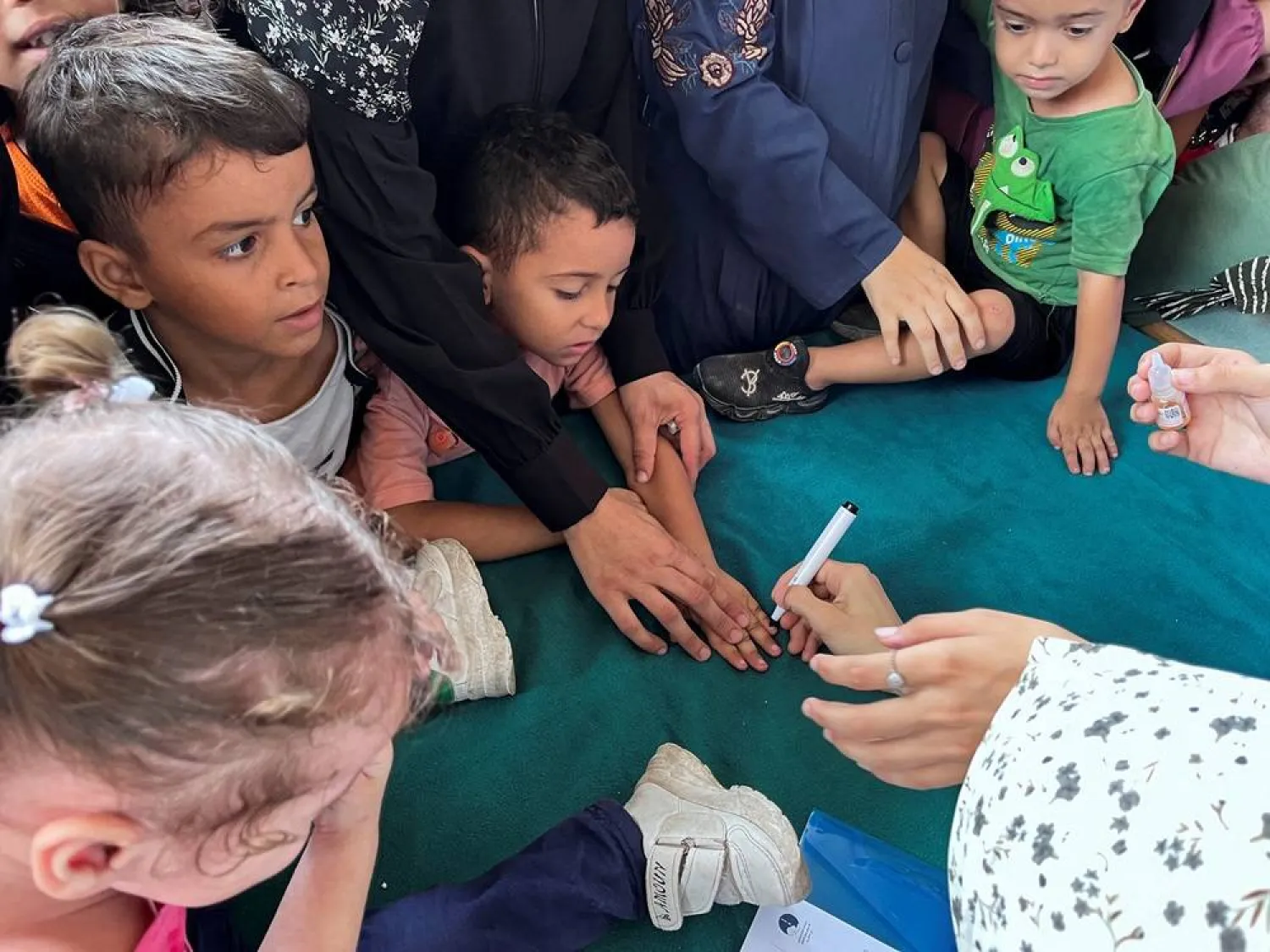Ghadir Hajji rushed to a clinic on Sunday in hopes her five children would be among the first to get vaccinated against polio, which has re-emerged in war-ravaged Gaza.
"They absolutely have to be vaccinated," she told AFP as the family waited in line for a vaccine drive announced after health officials reported last month the first case of polio in the besieged territory in a quarter of a century.
"We received text messages from the ministry of health and we showed up right away."
She was joined by thousands of other Gazans whose fear of polio -- which is highly contagious and potentially fatal -- despite concerns for their personal security and rumors the vaccine would not be safe or effective.
Poliovirus is highly infectious and most often spread through sewage and contaminated water -- an increasingly common problem in Gaza with much of the territory's infrastructure destroyed by Israel in its war against Hamas.
The disease mainly affects children under the age of five. It can cause deformities and paralysis, and is potentially fatal.
At one clinic alone in Deir al-Balah nearly 2,000 children were vaccinated on Sunday, said Louise Wateridge, a spokeswoman for the United Nations agency for Palestinian refugees, known as UNRWA.
The agency had mobile teams going from tent to tent, marking kids' thumbs with ink once they received their doses, Wateridge said.
The first doses were administered on Saturday to an unspecified number of children in the southern city of Khan Younis, ahead of Sunday's large-scale rollout.
The campaign aims to vaccinate more than 640,000 children in the besieged Palestinian territory, devastated by almost 11 months of war.
- 'Anxious' -
The World Health Organization (WHO) has delivered at least 1.26 million doses to Gaza already.
The health ministry in Hamas-run Gaza has identified 67 vaccination centers -- mostly hospitals, smaller health centers and schools -- in central Gaza, 59 in southern Gaza and 33 in northern Gaza to administer the doses.
The second dose of the vaccine must be given four weeks after the first.
On Thursday, the WHO said that Israel had agreed to a series of three-day "humanitarian pauses" in northern, southern and central areas to facilitate vaccinations.
Israeli Prime Minister Benjamin Netanyahu however has insisted that these pauses were not amounting to any kind of ceasefire in overall fighting in Gaza.
"There are a lot of drones flying over central Gaza and we hope this vaccination campaign for children will be calm," Yasser Shaaban, medical director of Al-Awda hospital in central Gaza, said on Sunday.
The humanitarian pause was meant to last from 6:00 am (0300 GMT) until 2:00 pm, according to a statement issued Saturday by COGAT, the Israeli defense ministry body which oversees civilian affairs in the Palestinian territories.
Wateridge said she heard some gunfire in central Gaza after 6:00 am, but after that the area remained calm.
"It's very hard to go from living in absolute fear for every second of your waking and even sleeping day to then suddenly be assured, 'Oh no it's fine now,'" said the UNRWA spokeswoman.
"We're also anxious to see what happens after 2:00 pm. If the bombing continues after 2:00 pm this is of course going to impact the vaccination campaign... The only way to do this is a ceasefire."
The war in Gaza erupted after Hamas's October 7 attack on southern Israel which resulted in the deaths of 1,205 people, mostly civilians, according to an AFP tally based on Israeli official figures.
Israel's retaliatory military campaign has so far killed at least 40,738 people in Gaza, according to the territory's health ministry.
The UN rights office says most of the dead are women and children.
The devastation of Gaza's health sector exacerbated global alarm after the Ramallah-based Palestinian health ministry said in August that tests in Jordan had confirmed polio in an unvaccinated 10-month-old baby from central Gaza.
Palestinian mother Basma al-Batsh told AFP on Sunday she was "very happy" the vaccination drive was underway.
"I want to protect my children because I was afraid that they would be affected and become disabled," she said.









